 Petzlover
Petzlover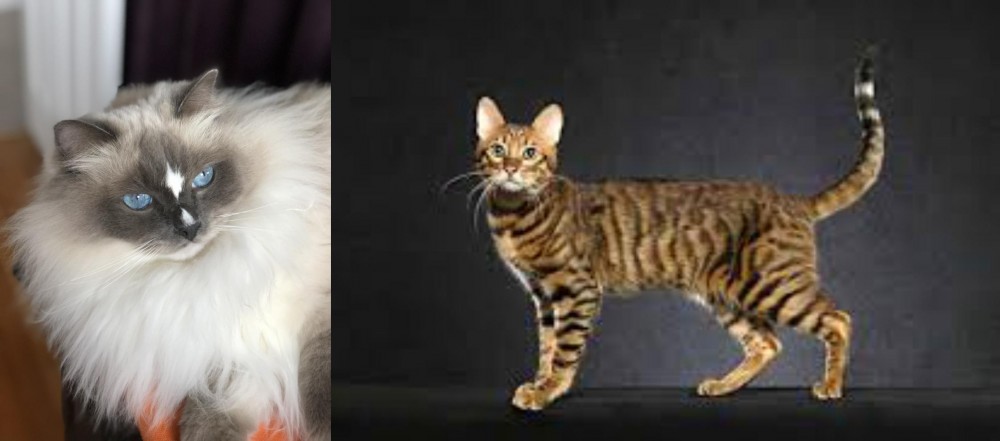 Both Ragdoll and Serengeti are originated from United States. Both Ragdoll and Serengeti are having almost same weight. Ragdoll may live 3 years more than Serengeti. Both Ragdoll and Serengeti has same litter size. Ragdoll requires Moderate Maintenance. But Serengeti requires Low Maintenance
Both Ragdoll and Serengeti are originated from United States. Both Ragdoll and Serengeti are having almost same weight. Ragdoll may live 3 years more than Serengeti. Both Ragdoll and Serengeti has same litter size. Ragdoll requires Moderate Maintenance. But Serengeti requires Low Maintenance
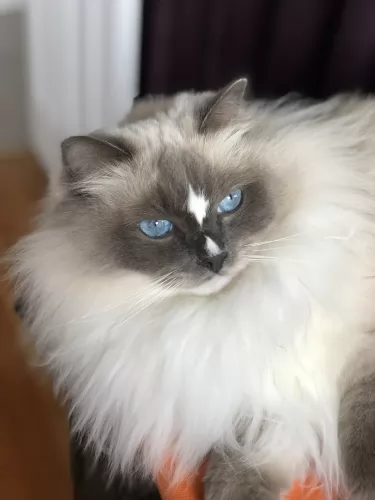 It was in the 1960s that a regular domestic longhaired cat with white fur produced several litters of cats. There was one litter where the kittens with a docile temperament, seemed to go limp when picked up.
It was in the 1960s that a regular domestic longhaired cat with white fur produced several litters of cats. There was one litter where the kittens with a docile temperament, seemed to go limp when picked up.
Anne Baker set out to start a breeding program and all Ragdolls are descended from Baker's cats. In fact, the cat credited as the original Ragdoll was a cat with the name Josephine, and Ragdolls are sometimes called ‘the daughters of Josephine.
Baker set up her own registry, the International Ragdoll Cat Association. The IRCA still exists, but another pair developed the Ragdoll standard that is accepted by major cat registries. Today. The biggest international Ragdoll breed club is the Ragdoll Fanciers' Club International.
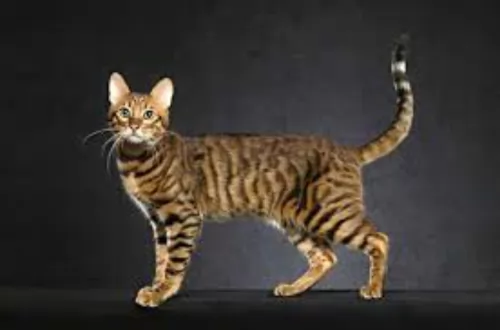 This is a cat breed that was deliberately bred to resemble the Serval cat. It was developed by crossing a Bengal cat and an Oriental Shorthair.
This is a cat breed that was deliberately bred to resemble the Serval cat. It was developed by crossing a Bengal cat and an Oriental Shorthair.
The cat was developed by biologist Karen Sausman in California in 1994. The breed is still under development.
The idea with this hybrid cat was to produce new domestic cat breed that would look like a wild cat but not have the wild characteristics.
The cat is recognized by TICA – The International Cat Association.
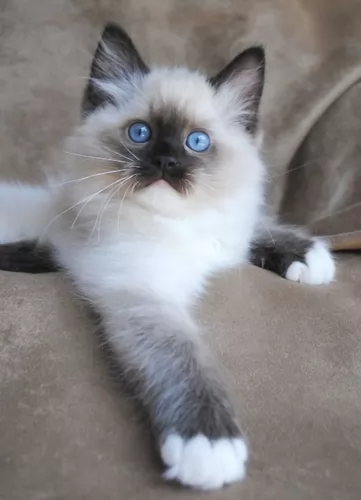 The beautiful Ragdoll cat is a large, heavy-boned cat. Sometimes they can be 9kg in weight. It has a soft, silky coat that can be semi-long to long.
The beautiful Ragdoll cat is a large, heavy-boned cat. Sometimes they can be 9kg in weight. It has a soft, silky coat that can be semi-long to long.
The cat has remarkable blue eye and the beautiful silky coat comes in several shades such as cream point, chocolate point, seal point, and others.
The ears are medium-sized and, the legs long and strong and the oval-shaped eyes are blue. The cat is known as a pointed breed, which means that the body is lighter in color than the points.
Ragdolls are casual, even-tempered, laid-back kind of cats. They are playful but not particularly energetic so you won’t find these cats leaping onto top perches such as what other cats do.
These docile cats love to be petted and pampered and carried around. It literally goes limp with pleasure at being loved and pampered by its human companions. He’s such a friendly cat who, much like a dog, will even greet you at the door and learn to play some games.
This amicable cat gets on well with children and other pets in the home, making a splendid family pet and he can even learn to walk on a leash.
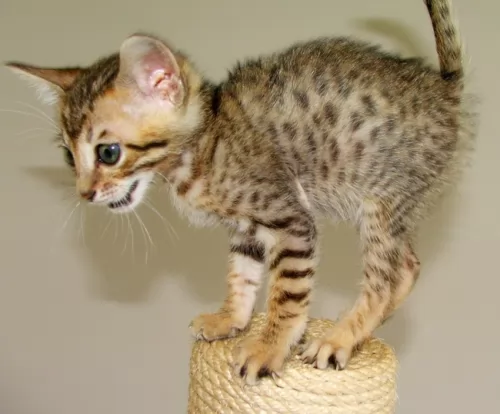 These are spotted cats with long legs and large, round-tipped ears. The neck is long and the body lithe, lean, and muscular.
These are spotted cats with long legs and large, round-tipped ears. The neck is long and the body lithe, lean, and muscular.
They are medium to large in size and can weigh up to 7 or 8kg. The coat is tan and cream with silver or grey coloring as well as black spots and stripes. Some Serengetis appear to be black but on closer look, you see that they have what is known as ‘ghost spotting’ – a black-spotted pattern that can scarcely be seen.
You may even think you are looking at a black panther. The coat is short, silky, smooth, and sleek. The eyes of the cat are round and are usually amber or gold.
The Serengeti is a friendly, social, and confident cat that is quite capable of forming a strong attachment to its human family. It is a loving, loyal cat. The cat can become bored and will need plenty of puzzle toys to keep his mind and body physically active.
You will need to provide him with a scratching post too as he is a lively, energetic cat. This isn’t only an indoor cat. Cats like the Serengeti will need an outdoor enclosure and the Serengeti cat will need branches and perches to leap up onto.
He is an active cat and can become bored if left indoors. They are capable of making a good family pet and are vocal too – telling you all sorts of things.
 The Ragdoll really is a splendid cat for any family that loves pets. They are such loving cats and adore being pampered by their human owners.
The Ragdoll really is a splendid cat for any family that loves pets. They are such loving cats and adore being pampered by their human owners.
These cats get on well with children and other pets, and because they are such mild-mannered cats, you never find a Ragdoll striking out in anger. That is why it is so important that children be taught kindness and gentleness with animals like the Ragdoll and not to take advantage of its good nature.
Playful and entertaining, the Ragdoll is bursting with his own unique personality – a super feline companion for the whole family.
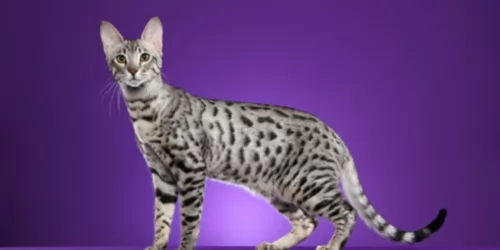 The Serengeti is both a friendly and affectionate cat even though he is a bit shy and overwhelmed in new surroundings.
The Serengeti is both a friendly and affectionate cat even though he is a bit shy and overwhelmed in new surroundings.
He is a cat that talks quite a bit and if he is happy and content he enjoys 'chatting' to you about his day.
He is able to get on well with children in the home as well as with other pets. He is an athletic cat and just loves to climb, and this is why he will certainly need an outdoor enclosure as he loves to dart around madly from time to time, and doing that in your home could be quite dangerous.
He is capable of being a loving cat breed and can form a strong bond with his human family.
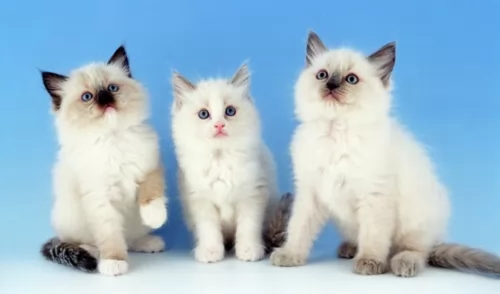 All cats, whatever the breed, can succumb to any one of the many cat diseases there are. A high-quality diet, a loving, caring lifestyle, the appropriate vaccines and parasite treatment can all help to keep your Ragdoll as happy and healthy as possible.
All cats, whatever the breed, can succumb to any one of the many cat diseases there are. A high-quality diet, a loving, caring lifestyle, the appropriate vaccines and parasite treatment can all help to keep your Ragdoll as happy and healthy as possible.
Ragdolls are generally healthy cats but you may want to look out for bladder stones. Another disease to watch for is a heart condition known as hypertrophic cardiomyopathy. This heart disease causes thickening of the heart muscle.
While the disease is usually found in older cats, there is also a juvenile form that affects younger cats, and often young Ragdolls.
Sometimes there aren’t symptoms, and if your cat has labored breathing, loses his appetite or has vomiting, you may need to get your Ragdoll to the vet who will listen to his heart for abnormalities.
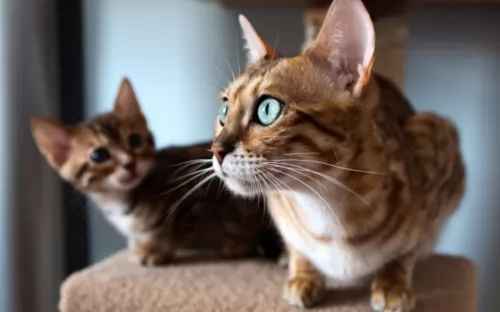 Hybrid Cats such as the Serengeti are a combination of a wild breed and a domestic breed. With good care he can live to be up to 15 years of age and possibly longer.
Hybrid Cats such as the Serengeti are a combination of a wild breed and a domestic breed. With good care he can live to be up to 15 years of age and possibly longer.
Hybrid cats are always controversial because people who have owned them have got both good and bad to say about them. They have some behavioral issues and many of them have an aggressive side, they’re aloof and they refuse to use a litter box. The cat can’t be blamed though because they have that wild side.
They also come with some health issues such as premature birth, miscarriage, diarrhea, and irritable bowel disease. You may just find yourself more often at the vet than you’d like.
You will need to ensure that your Serengeti gets all his vaccines and de-worming treatments.
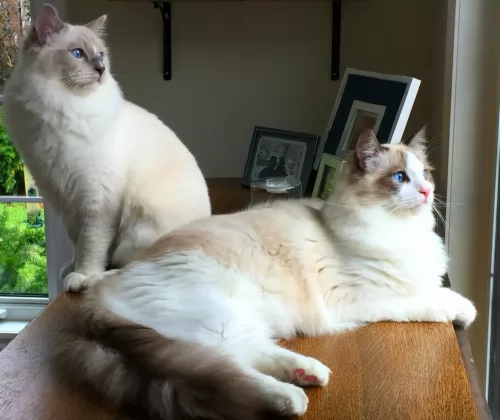 Even though the Ragdoll’s coat is long and silky, it’s the kind of coat that doesn’t require too much maintenance. Certainly, you’ll want to comb and brush it once a week.
Even though the Ragdoll’s coat is long and silky, it’s the kind of coat that doesn’t require too much maintenance. Certainly, you’ll want to comb and brush it once a week.
The other grooming he requires is regular nail trimming.
Understand your Ragdoll’s eating habits. Remember cats are carnivores and this means that their diet has to be made up of meat. Food puzzles are great for these cats but whatever snacks and treats you give your Ragdoll, make sure that they are healthy for a cat and don’t give your cat digestive problems.
Provide your Ragdoll with a litter tray and make sure to remove the feces every single day.
Cats are prone to periodontal disease, but while it has become the latest trend to brush your pet’s teeth, this can be upsetting and traumatic for a pet. A good diet can help to keep teeth healthy. Your vet can look inside your pet's mouth to see if any teeth need attending to.
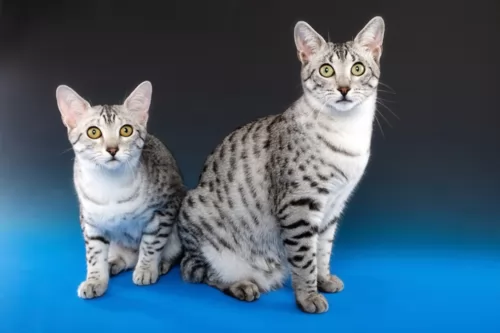 Grooming is easy for the Serengeti as it is a short-haired cat and will require a brush just once a week. Trimming the claws will also be necessary.
Grooming is easy for the Serengeti as it is a short-haired cat and will require a brush just once a week. Trimming the claws will also be necessary.
A cat such as the Serengeti has been developed by crossing the domestic cat with a wild breed. This means that there will be concerns with the temperament and behavior of these cats in a home setting. Apart from being allowed indoors, they will need an outside enclosure.
Having a wild side, while every cat is a carnivore, these cats are even more so. Their diet has to be strictly protein – meat. Wild cats would have a diet made up of birds and lizards. You want to avoid commercial cat foods that are of lower quality and have less meat in and more carbohydrates. This just spells ill health for your cat. Cats also need some fresh raw meat in their diets.
It is important to keep up your Serengeti's veterinary checkups to make sure there aren’t any health concerns.